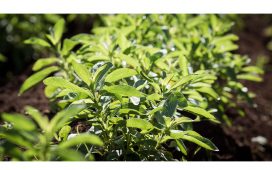The presence of harmful pesticides in the food we eat has risen dramatically across the EU over the last 10 years, according to new research.
The report by the Pesticide Action Network Europe (PAN), contradicts official claims that toxic pesticide use is declining and ‘exposes a complete failure by member states to implement EU Regulation and protect consumers’.
The data did not include the UK but the 27 EU member states export over 3.2 million tonnes of fresh fruit and vegetables to the UK each year, 40% of the UK’s internal demand.
The analysis of almost 100,000 fruit samples in Europe found a 53% rise in the most hazardous pesticides over nine years.
For example, a third of apples had residues of the most toxic categories of pesticides – which have been linked to cancer, heart disease, and birth deformities.
This is despite legal requirements for EU member states to phase out 55 pesticides identified as particularly harmful that have been in place since 2011.
Salomé Roynel, Campaigner at PAN Europe, said: “This category gathers the worst substances used on food still approved on the European market.
“These chemicals should disappear from our food. But instead, we have observed a dramatic increase in exposure to these most toxic substances over the last ten years.
“The proportion of fruits and vegetables contaminated with these pesticides continues to rise. Often the food shows multiple residues of two or more of these toxic substances at the same time.
“(Member states) have failed in their responsibility to protect consumers.”
Stefan Van De Keersmaecker, a European Commission spokesman told the Guardian: “Efsa [the European Food Safety Authority] publishes each year a report on pesticides residues in food products, which is generally acknowledged to be the most comprehensive report on this issue.
“For many years, the report has shown that 98% of the samples collected comply with EU legislation.”
PAN Europe is calling for a direct ban of the 12 most toxic pesticides and a total phase out of all 55 very harmful pesticides by 2030.






